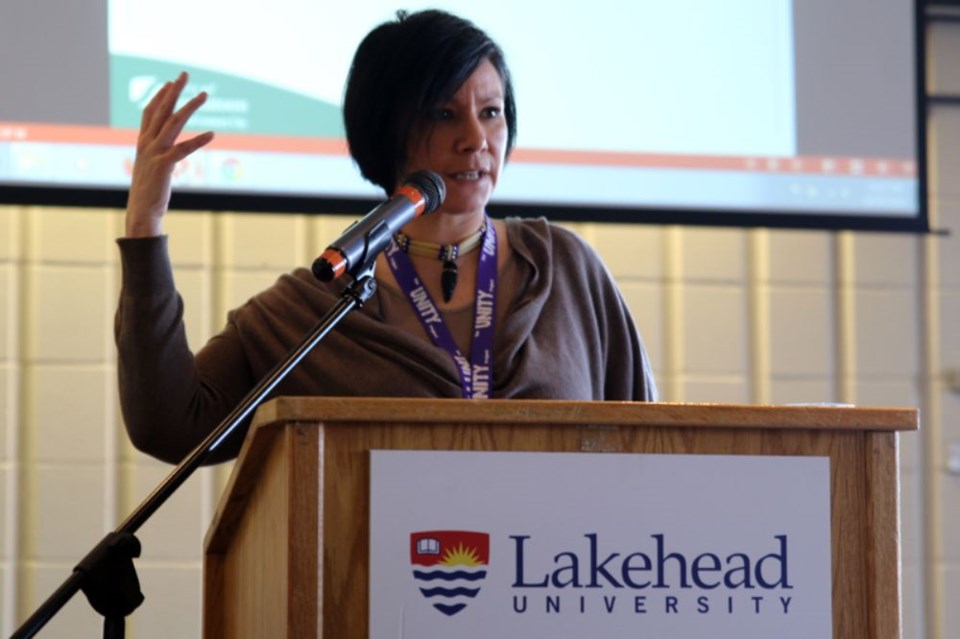THUNDER BAY – The next generation is being called to play its role in complex and changing local anti-racism work.
A day-long Unity Project forum for high school students is underway at Lakehead University, where young people are learning about institutionalized racism and sharing their experiences with Leadership Thunder Bay.
City of Saskatoon cultural diversity and race relations consultant Becky Sasakamoose Kuffner gave the keynote address on Monday morning. She said studies her city has conducted have shown the concept of racism is still widely misunderstood.
“People believe racism and the negative effects of racism are due to an internalized or interpersonal relationship with racism and with other people. In reality, racism is a legacy of institutionalized policy and practice that exists in our society,” she said.
“Even though I may harbour certain thoughts or feelings towards racialized people, ultimately the reason we have a disparity in social outcomes – mostly between Aboriginal and non-Aboriginal people in justice, in health and employment and the gaps are so wide – is because of institutionalized racism.”
Sasakamoose Kuffner was among thousands of Indigenous children Canada took away from their families and communities in the ‘60s Scoop to be raised in foster homes. She spoke highly of her upbringing and her Caucasian adopted parents but she recalled suffering with reclaiming her cultural identity.
She asked students to consider how well-meaning individuals can be unknowingly and unintentionally involved in systemic racism.
Sasakamoose Kuffner said Saskatoon has made strides in adopting an anti-racist discourse to replace diversity and multicultural education. It has also made changes to institute equity in recruitment processes.
Sasakamoose Kuffner insisted individuals also have a role to play.
“We need to understand how those thoughts, those feelings, that narrative is into our head so we can choose consciously not to allow those racial slurs, that hatred or that sense of superiority over others to govern our actions and how we behave around other people.”
Students found the institutional racism discussion complex but said they see prevalent racism at school and in social media. Their preferred approach is confronting hate speech when they hear it.
“I think they accept it in society but it’s unacceptable,” St. Patrick’s High School Grade 10 student Justin Kawei said of his generation.
“I think people need to stand up for it and if they see it, to make a change… People get emotionally depressed about it. Good friends help people with that.”
Churchill Grade 9 student Sharran Sekhon said she sees casually open racism in the media and hears it at school.
“Even if people aren’t trying to be racist, they might make a joke and it might have racist terms,” she said.
“I see it more like people are trying to get someone to be hurt when they say terms like that because people when they do racist acts, it seems like it’s on purpose.”
